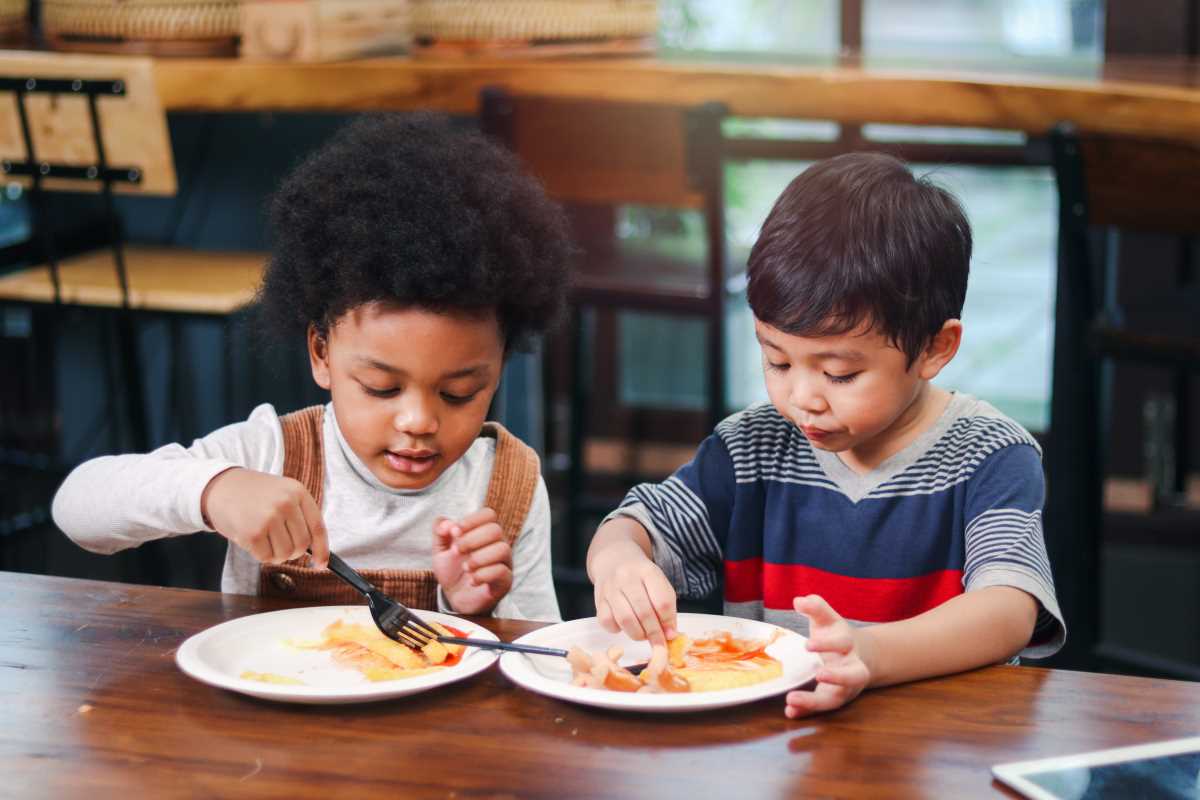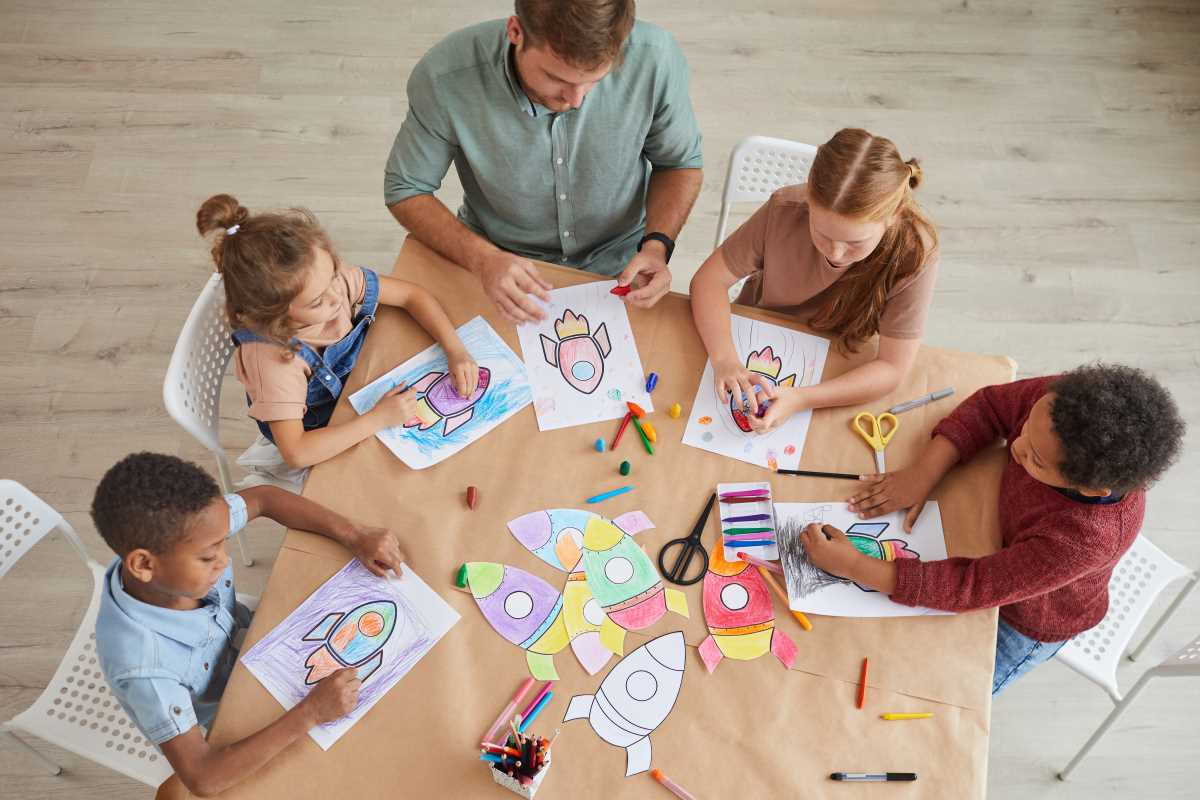As parents, we all want our kids to grow up being kind, respectful, and open to new ideas. But raising open-minded children in a world that often feels divided and opinionated can be a challenge. It’s easy to fall into the trap of pushing our own beliefs or values onto our kids, but the truth is that the best way to raise open-minded kids is to encourage curiosity, empathy, and critical thinking from an early age. It’s about teaching them to listen, respect differences, and form their own opinions based on facts, experience, and understanding.
If you’re a busy parent juggling work, household responsibilities, and everything in between, it might seem overwhelming to prioritize open-mindedness. But the good news is that fostering an open-minded attitude in your kids doesn’t require extra time or effort—it just involves making small, everyday choices that encourage them to think for themselves and embrace diversity. In this guide, we’ll break down practical tips on how to raise open-minded kids in a simple, manageable way.
Modeling Open-Mindedness
One of the most powerful ways to raise open-minded kids is by modeling open-minded behavior yourself. Children are keen observers and often learn by example. When they see you treating others with respect and being open to new ideas and experiences, they are more likely to follow your lead. This doesn’t mean you have to agree with everything or everyone around you, but it does mean showing respect for differing viewpoints.
For example, if you find yourself in a discussion with someone who holds a different opinion, rather than dismissing their point of view, you can engage in the conversation by respectfully listening and offering your perspective in a calm manner. This shows your children that it’s possible to disagree without being disrespectful. Also, be open about your own mistakes and changes in perspective. Admitting when you’re wrong or when you’ve changed your mind teaches your children that evolving your thoughts is a sign of growth, not weakness. By demonstrating open-mindedness in your everyday interactions, your kids will begin to adopt similar behaviors.
Encouraging Curiosity and Exploration
Curiosity is the foundation of open-mindedness. When children are curious, they naturally want to learn more about the world around them, and this encourages an open mind. You can foster curiosity by exposing your children to new experiences, ideas, and activities that expand their horizons. This could include something as simple as taking them to a museum, trying new foods, or having them engage with different forms of art and culture. The more they experience, the more they’ll learn to appreciate diversity.
You can also help foster curiosity by encouraging your child to ask open-ended questions, which require more than a simple “yes” or “no” answer. Instead of asking them if they had a good day, ask them what they learned or what surprised them. This type of question invites deeper thinking and can lead to thoughtful discussions about different topics and perspectives.
Books are another great tool for introducing new ideas. Choose stories with diverse characters or ones that take place in different countries, as these types of books help children understand and appreciate different cultures, ways of life, and challenges that others face. It’s important that your kids see the world as a broad and varied place, with each person having a unique perspective.
Teaching Empathy and Compassion
Open-mindedness and empathy go hand in hand. Empathy involves understanding and sharing the feelings of others, and it encourages kids to be kind and respectful, even when they don’t fully understand someone else’s point of view. One way to teach empathy is to talk about feelings—both your own and those of others. Help your child understand that it’s not just about how they feel, but also about how others feel. For example, if your child is upset, ask them how they think the other person involved might feel, and what they can do to show kindness or understanding.
Another great way to teach empathy is through role-playing. You can create scenarios where your child has to imagine what it might be like to be in someone else’s shoes. For instance, you could pretend to be someone who is feeling left out, and ask how your child would respond in that situation. Role-playing like this helps kids practice empathy in a way that feels safe and controlled.
In addition, encourage your child to practice acts of kindness. Whether it’s helping a classmate with homework or comforting a friend who’s feeling down, these actions help them understand the impact they can have on others’ emotions. Over time, they’ll begin to internalize the idea that showing empathy and compassion is an important part of being open-minded.
Exposing Kids to Different Perspectives
For kids to be open-minded, they need to realize that there are many different perspectives in the world. Exposing them to different viewpoints, cultures, and lifestyles helps them understand that everyone’s life experiences shape the way they see the world. This doesn’t mean forcing your child to agree with everything, but it encourages them to listen and try to understand different perspectives.
One way to do this is by exposing your child to various forms of media—whether it’s movies, books, documentaries, or television shows—that feature characters from diverse backgrounds. For instance, a documentary about a different culture or a movie with a diverse cast can open up discussions about race, history, and life in different parts of the world. Similarly, books with diverse characters or settings help children gain insight into experiences that are different from their own.
Travel, if possible, is another great way to expose your children to different perspectives. Whether it’s a family vacation to another country or just visiting a different neighborhood in your own city, traveling helps kids learn firsthand about other cultures, languages, and traditions. It also encourages them to be more adaptable and open to new experiences.
Encouraging Critical Thinking
Open-mindedness isn’t just about accepting new ideas—it’s about thinking critically and being able to evaluate information and form opinions based on facts. Teaching your children how to think critically is essential for fostering an open mind. Encourage your child to ask questions and challenge assumptions, whether it’s about something they read, something they hear from others, or something they see on TV. This kind of critical thinking is key to developing a broader understanding of the world.
To encourage critical thinking, avoid providing answers right away. Instead, let your child work through their own questions and come to conclusions on their own, with guidance when needed. When discussing any issue—whether it’s something at school or a current event—help them understand the different sides of the story and ask them to think about the consequences of different actions or opinions.
You can also encourage critical thinking by giving your child opportunities to solve problems independently. This doesn’t mean doing everything for them; instead, allow them to make decisions, weigh options, and experience the consequences of their choices. This helps them understand the value of thinking through decisions and considering multiple viewpoints before reaching a conclusion.
Navigating Healthy Disagreements
It’s normal for people to disagree, and teaching your kids how to handle disagreements respectfully is essential to raising open-minded children. In any family or social setting, there will be differences of opinion, but that doesn’t mean those differences should lead to conflict. Instead, disagreements should be opportunities for healthy discussion and mutual respect.
Teach your child that disagreeing with someone doesn’t mean they have to be disrespectful or dismissive. Encourage them to listen to the other person’s point of view and express their own feelings calmly. For example, instead of simply saying “You’re wrong,” encourage your child to say something like, “I see it differently, and here’s why…” This helps them understand that disagreement can be an opportunity to share thoughts and learn from one another.
As you model this behavior in your own life, your child will see how to navigate disagreements respectfully and will learn that open-mindedness doesn’t mean agreeing with everyone—it means being willing to listen and consider other viewpoints.







